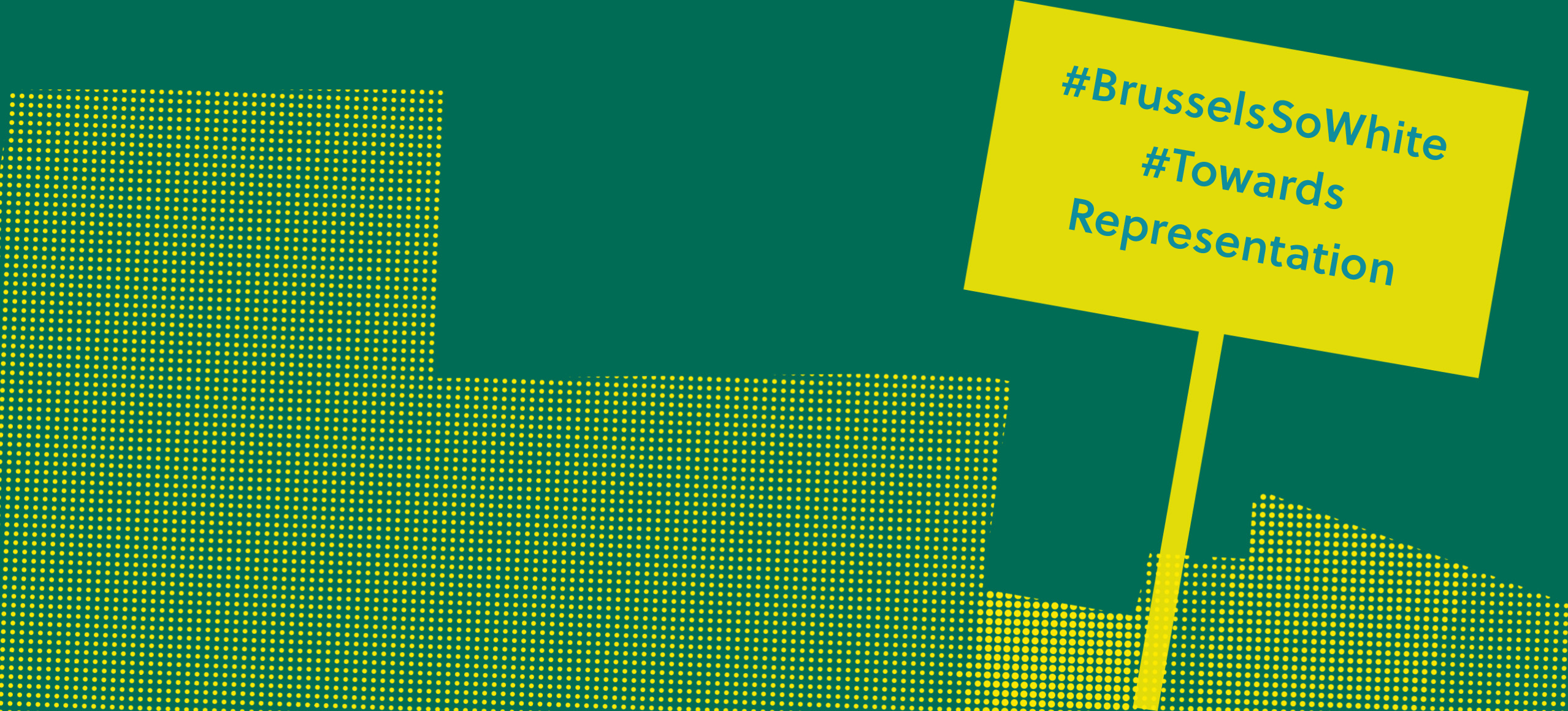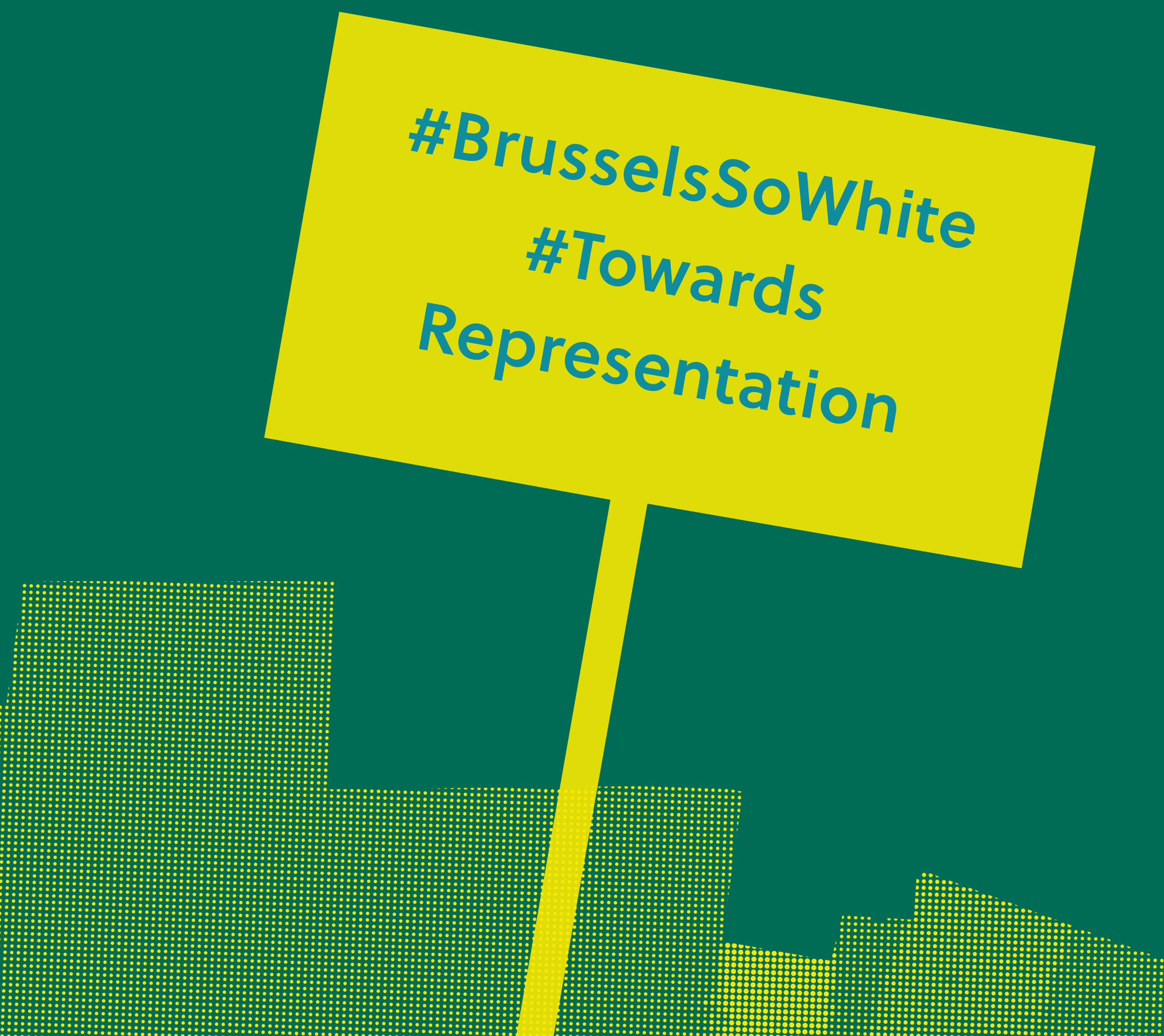
European Women’s Lobby (EWL)
50/50 campaign for gender parity (2014)

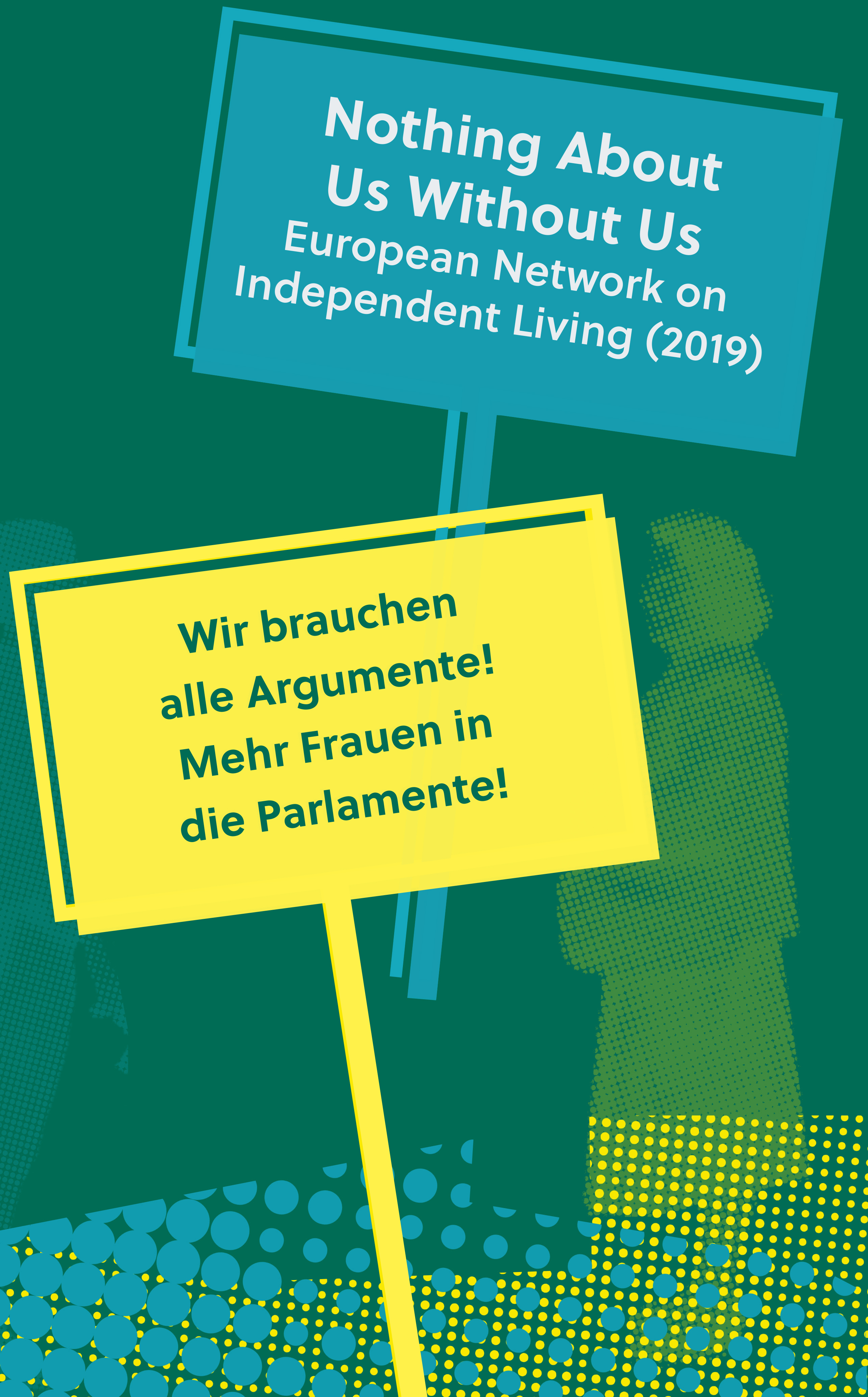
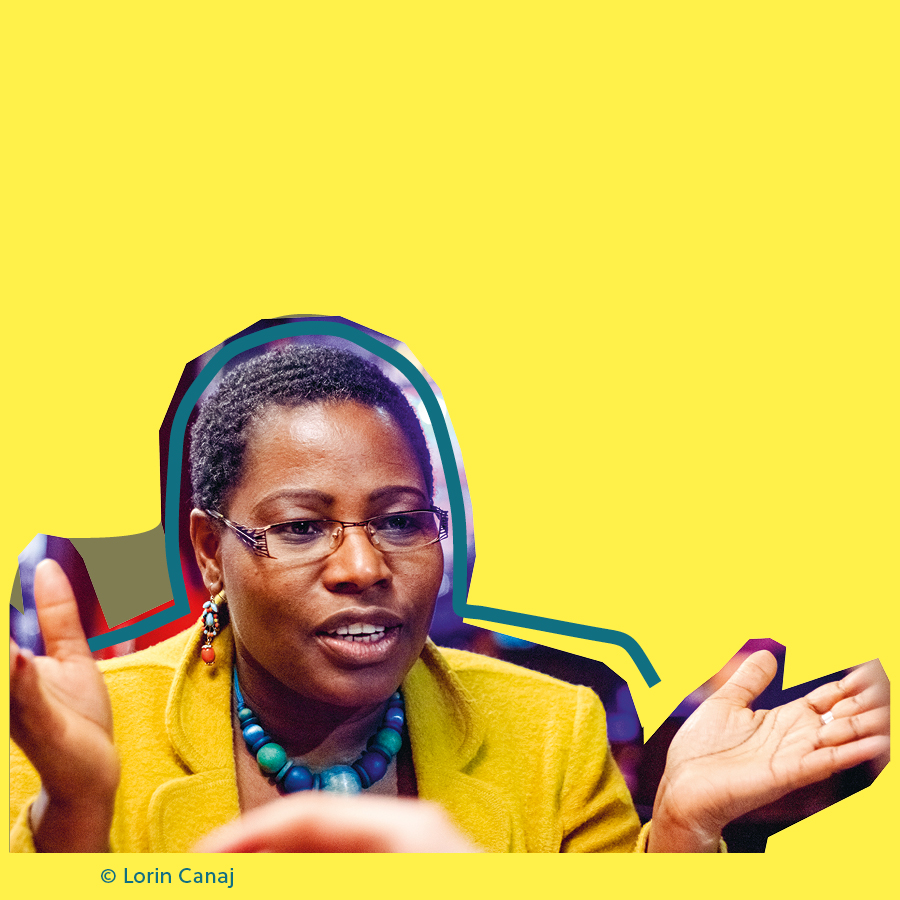
» [It] troubles me that hardly any female immigrants hold key positions in established national and European organizations, despite constant assurances that the institutions are open to diversity. […] The more female immigrants there are in higher positions, the more our concerns can be heard and addressed. «
(2008)
BEATRICE ACHALEKE
(Cameroon – AT, 1970)
… is an entrepreneur, diversity expert, author and publisher of GloBUNTU Books. As executive director of AFRA – INTERNATIONAL CENTER FOR BLACK WOMEN’S PERSPECTIVES, she was one of the initiators of the 1ST BLACK EUROPEAN WOMEN’S CONGRESS held in 2007 in Vienna. She is also the president of the BLACK EUROPEAN WOMEN’S COUNCIL (BEWC), which was founded off the back of the congress.
» You don’t have to be old to be a role model or an inspiration. Young women and girls, we are not here to follow, we are here to lead. We are active in making the future more feminist and equal for all women. «
(2017)
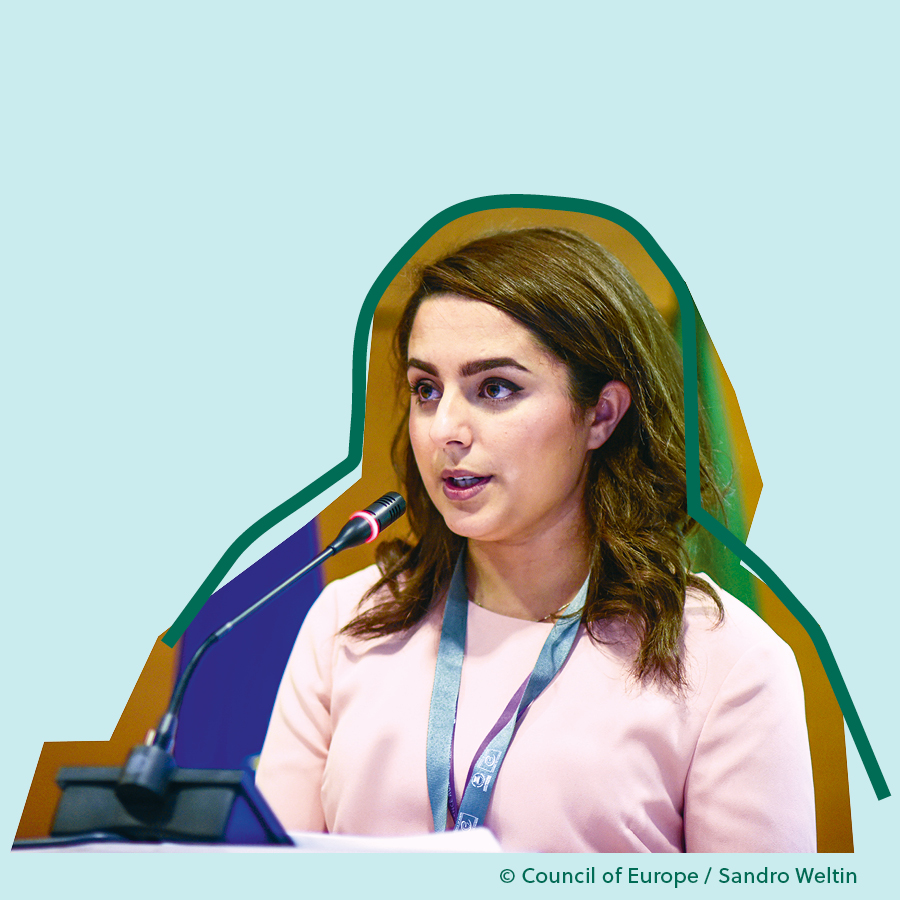
MINA JAF
(Iraq – DK, 1988)
… is an activist and founder of
WOMEN REFUGEE ROUTE (WRR). In 2017, her dedicated work earned her the WOMEN OF EUROPE AWARD in the YOUTH ACTIVISM category. Born in Iraqi Kurdistan, she arrived in Denmark aged 11.
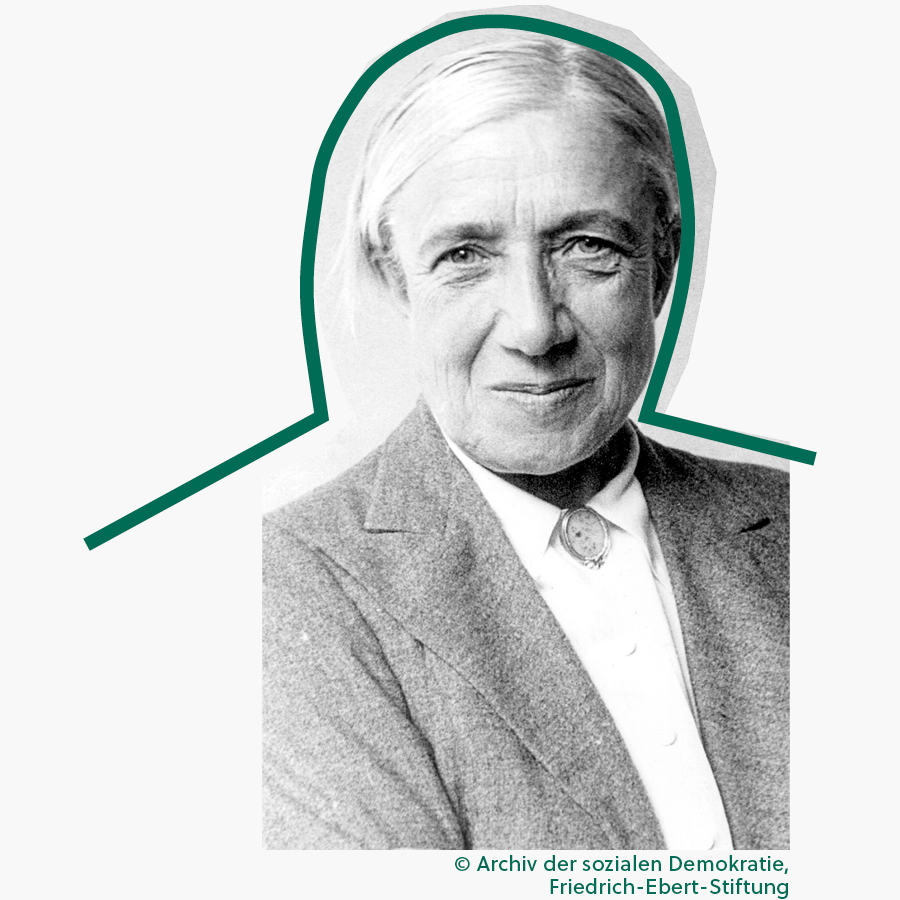
» If a united and free Europe arrives, […] full civil liberty for all European women will arrive with it. «
(1945)
ANNA SIEMSEN
(DE, 1882–1951)
… was an educator, politician (SPD) and author. After the Second World War, she was involved in various movements for European integration.

We need all arguments!
More women in the
parliaments!
Petition by the National Council of German Women’s Organizations
(Germany, 2019)
More than 100 years after women first gained the right to vote in Europe, the female population of the European Union continues to be underrepresented in the political institutions – from local to European level.
Reasons for this include traditionally accepted gender roles, institutional frameworks and socio-economic factors such as the financial dependency and multiple responsibilities of many women.
Moreover, women and girls are disproportionately more affected by multiple discrimination due to the mix of gender with other discriminatory characteristics. This makes it all the more difficult for them to make headway in the world of politics.
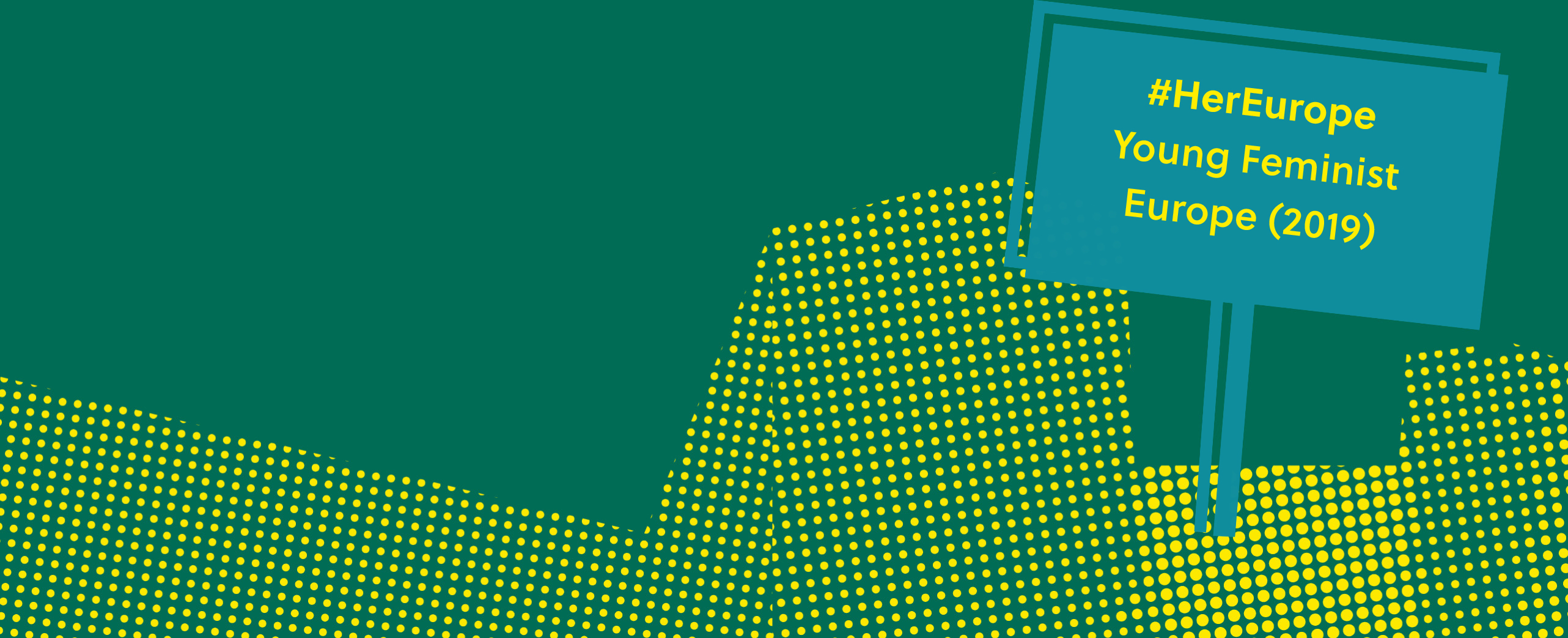
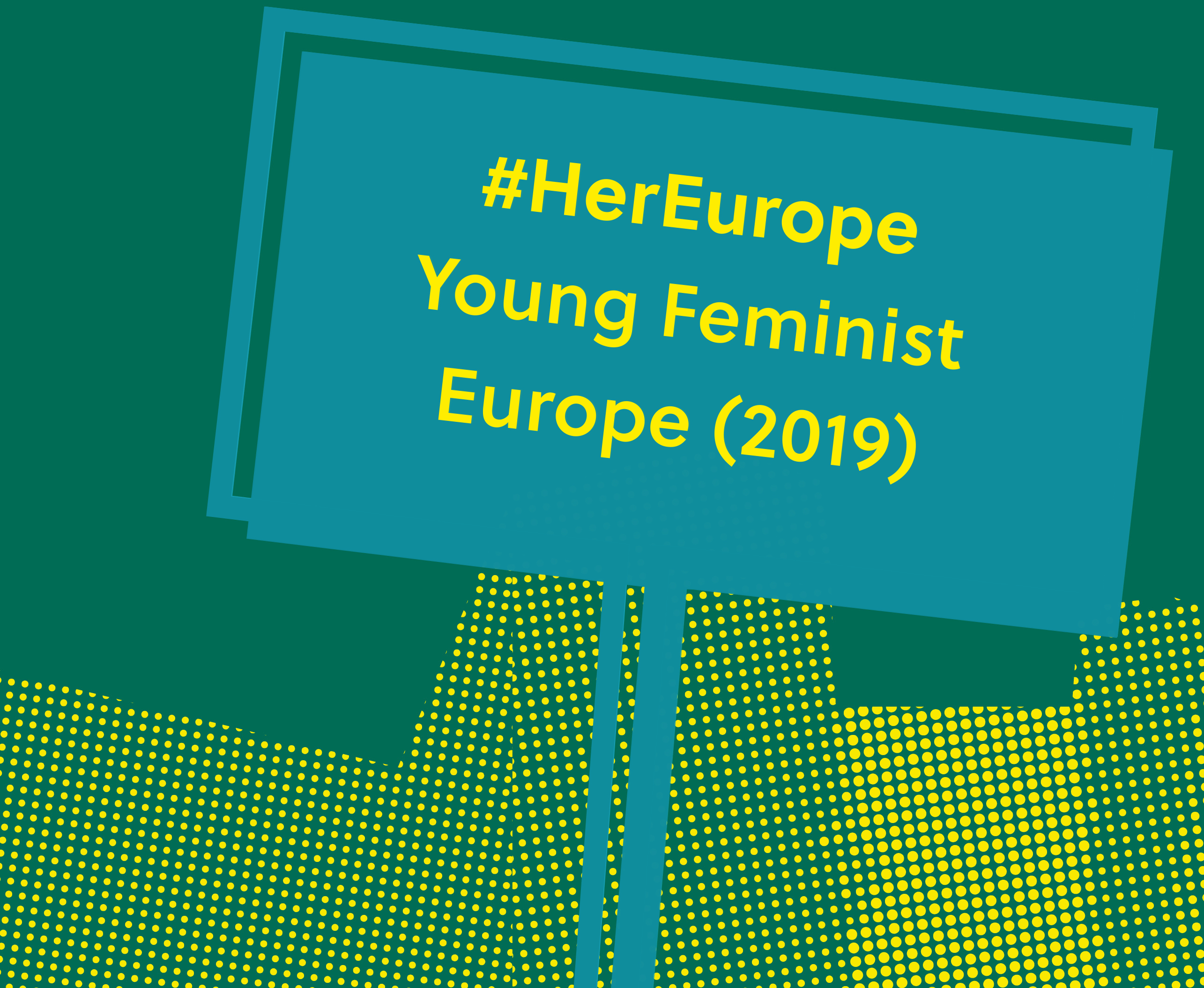
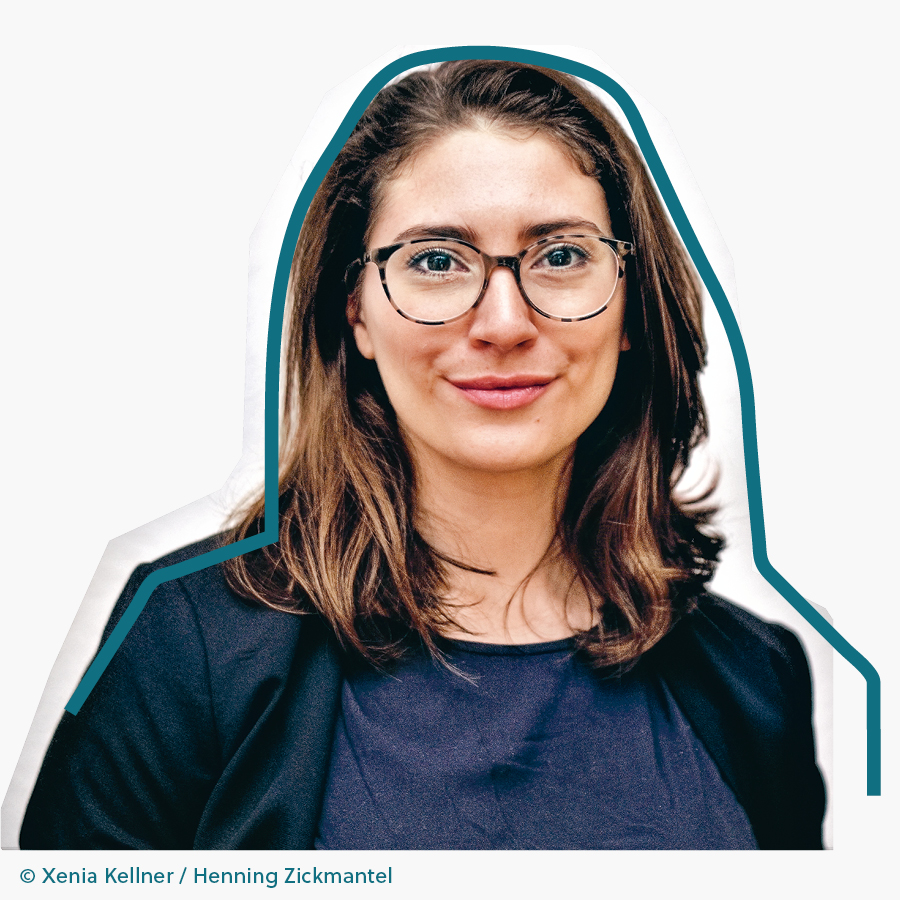
» Several parties have appointed numerous women and (young) people from diverse backgrounds and are able to demonstrate equal representation on their rosters. We can now use our voices to make a difference! One Europe for all, by all! «
(2019)
XENIA KELLNER
(DE, 1987)
… is co-founder of YOUNG FEMINIST EUROPE (YFE). Since 2019, she has also represented the European civil society organizations (CSOs) in the advisory group to the GENERATION EQUALITY FORUM of UN WOMEN.


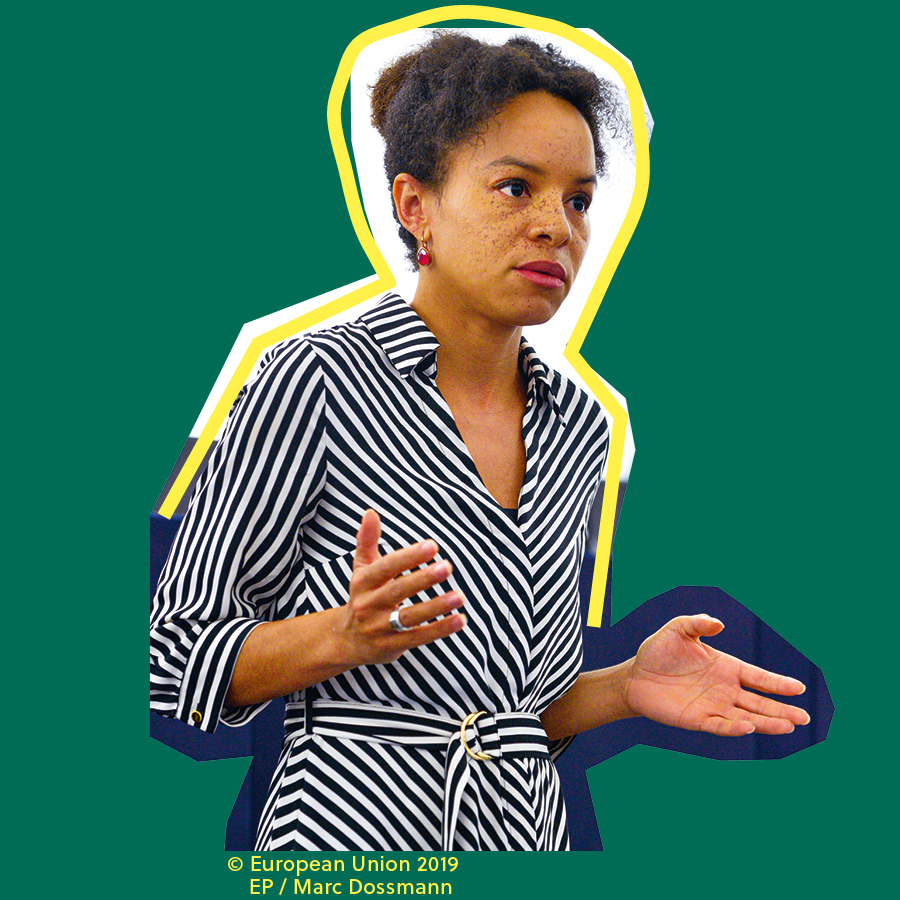
» I’ve always said that if I go into politics, I want to do it in Europe. There’s a clear lack of diversity in the European Parliament. Young, female and black: that’s not something you find there, or not often enough. Despite the fact that such important decisions are made there.«
(2019)
SAMIRA RAFAELA
(NL, 1989)
… is a politician (Democrats 66). Since 2019, she has been an MEP and, among other things, member of the COMMITTEE ON INTERNATIONAL TRADE and the COMMITTEE ON WOMEN’S RIGHTS AND GENDER EQUALITY on behalf of her political group (Renew Europe).
» It’s a great sign and a huge step that I’ve been voted into the European Parliament as the first woman with a visible disability. It’s important that people with disabilities are voted into parliaments and included in decisionmaking processes.«
(2019)
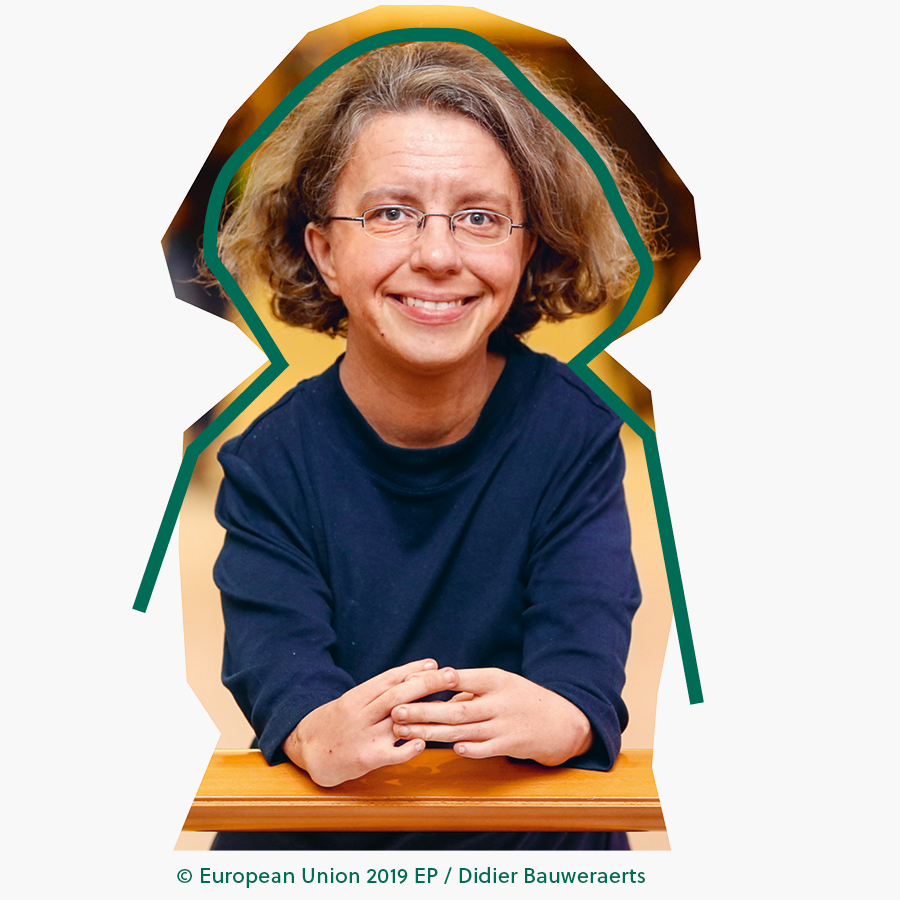
KATRIN LANGENSIEPEN
(DE, 1979)
… is a politician (ALLIANCE 90/ THE GREENS). Since 2019, she has been an MEP and, among other things, member of the COMMITTEE ON EMPLOYMENT AND SOCIAL AFFAIRS (EMPL) on behalf of her political group (Greens/EFA).

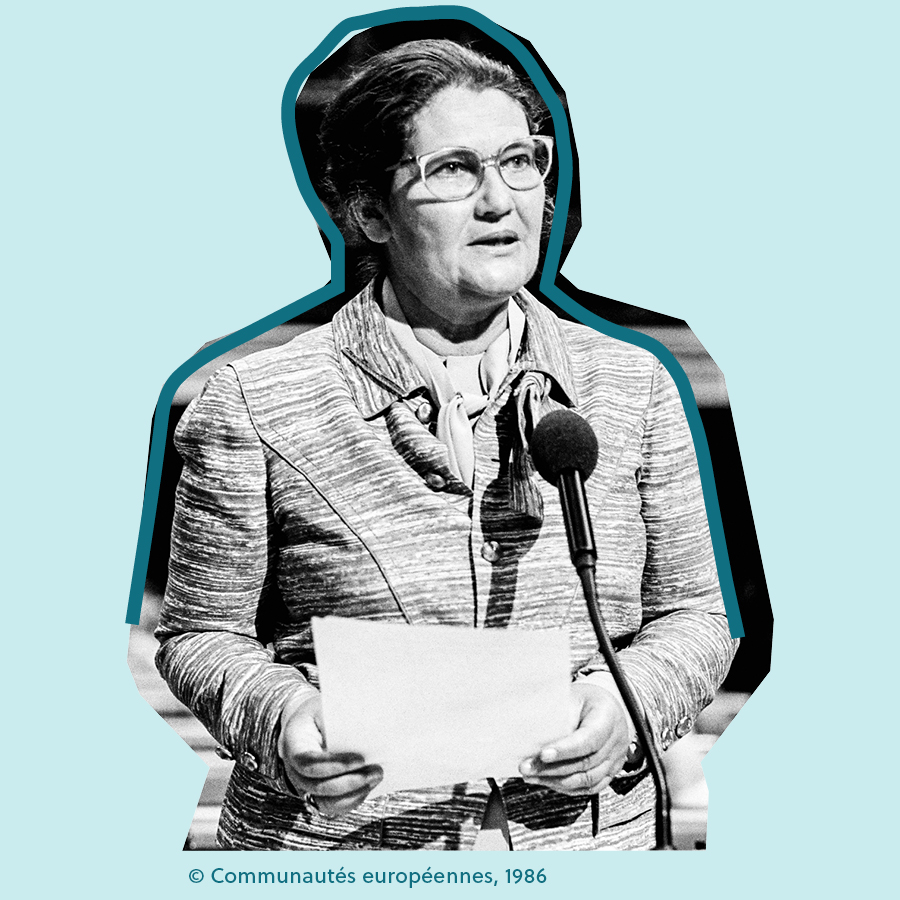
» I welcome all positive discrimination measures aimed at reducing opportunity gaps, social inequalities, income disparity and unequal advancement opportunities that women still have to endure today.«
(2007)
SIMONE VEIL
(FR, 1927 – 2017)
… was a magistrate and politician. She was elected president of the EP following the first direct elections in 1979 and remained MEP until 1993. She was one of the signees of the ATHENS DECLARATION, which was adopted by 20 leading female politicians in 1992 at the end of the EUROPEAN SUMMIT OF WOMEN IN POWER and stimulated the debate on parity democracy.
» Since 1958, there have been 183 commissioners. Only 35 were women. That is less than 20 percent. We represent half of our population. We want our fair share.«
(2019)
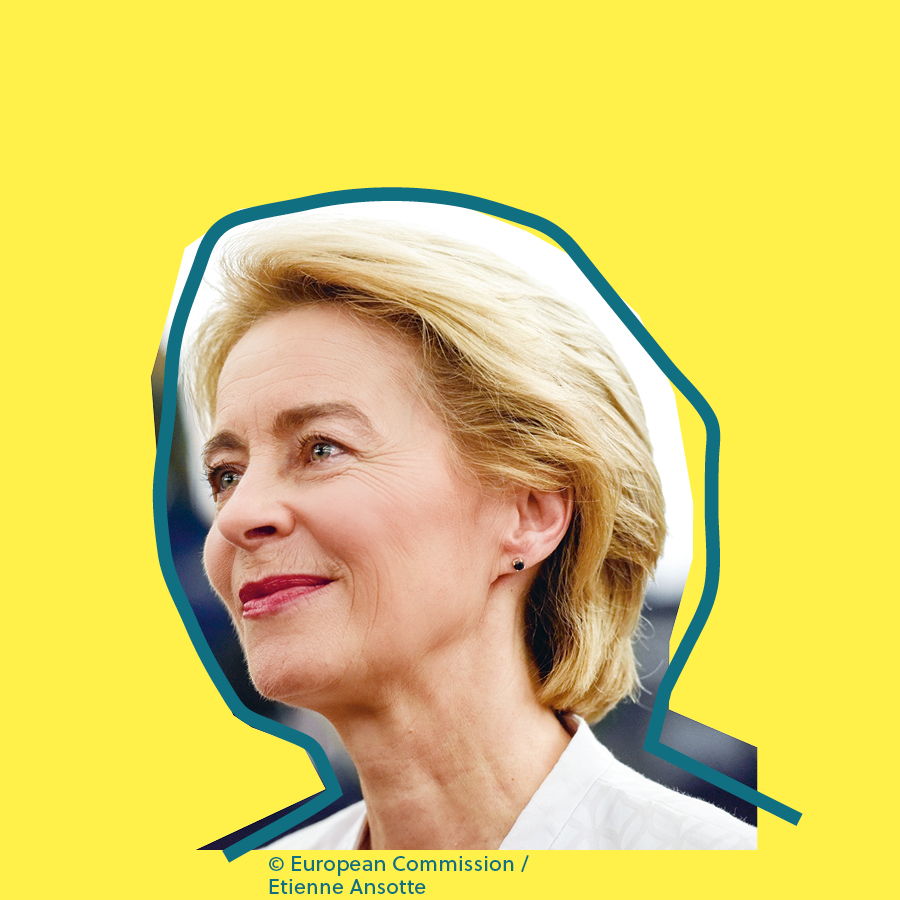
URSULA VON DER LEYEN
(DE, 1958)
… is a politician (CDU). She has been the president of the European Commission since 2019 and is the first woman to hold this post.
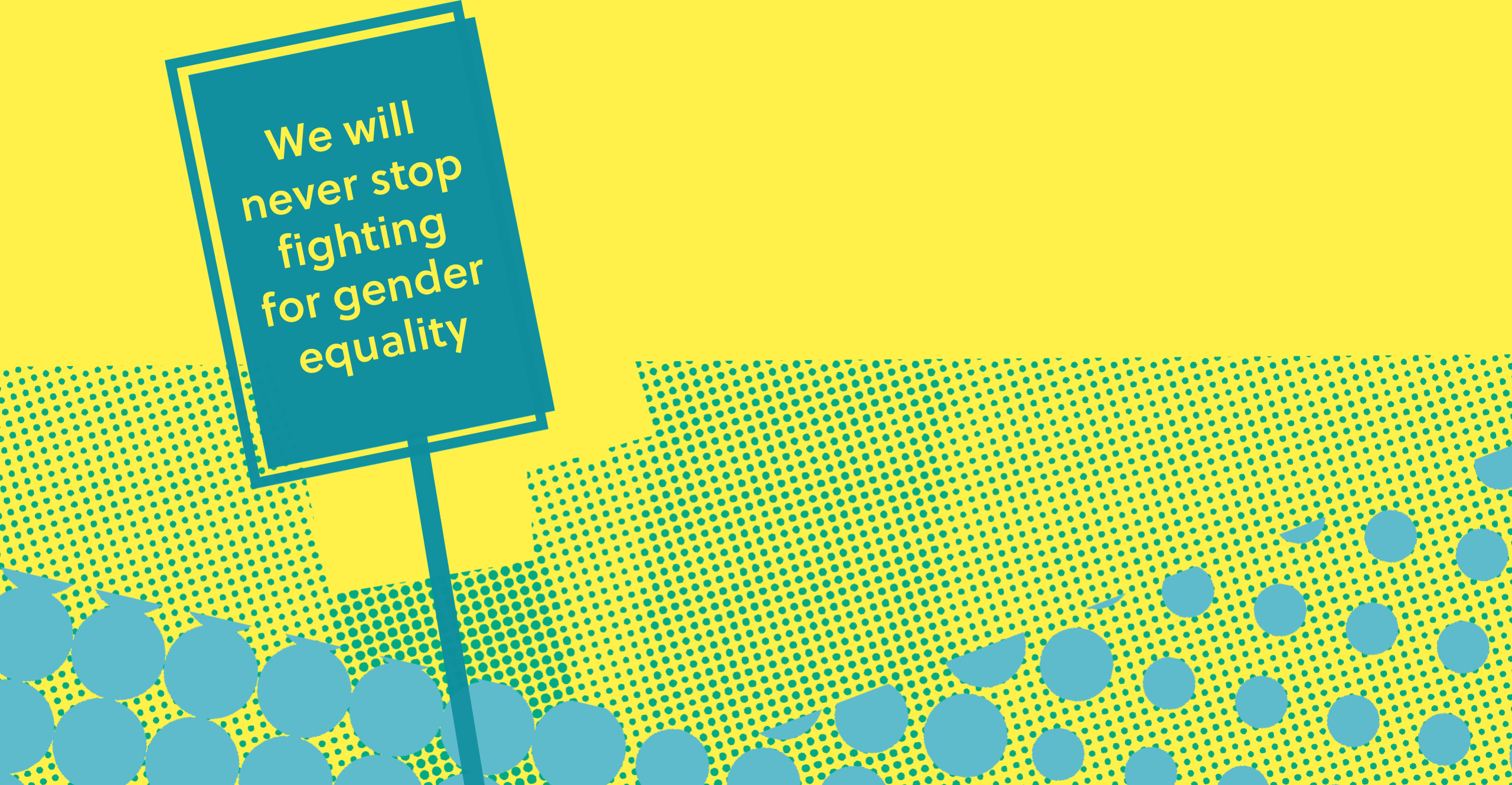
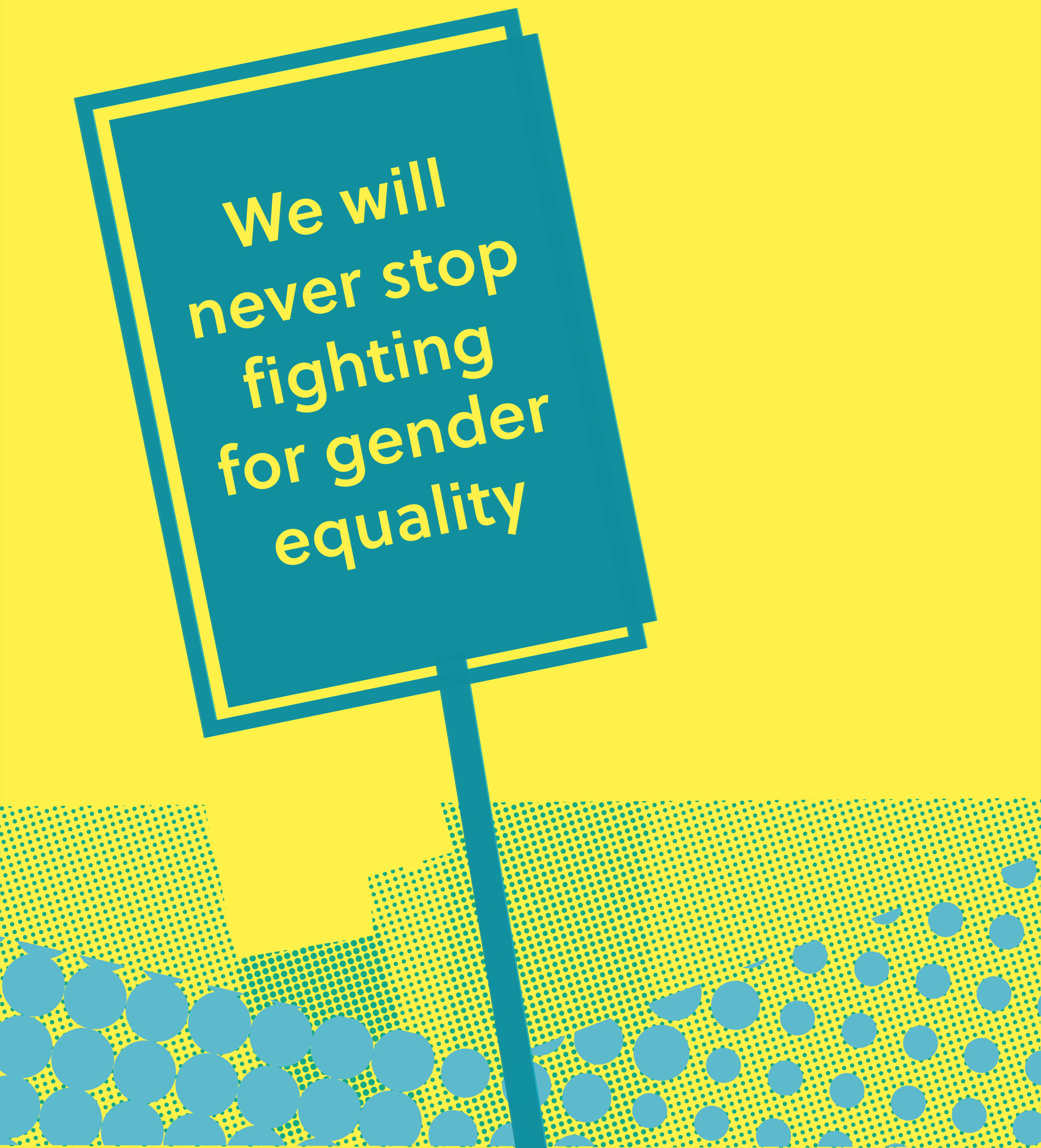

We will never stop fighting for
gender equality
#ThisIsTheEU Facebook post by the European Commission on the gender equality index
(15.10.2019)
Gender equality is one of the EU’s main goals. The original strategy of pursuing formal legal equality was supplemented in the 1970s by the more active promotion of women. Since 1999, the EU institutions have also been required to systematically consider the effects of gender policy in all their activities (gender mainstreaming).
Moreover, an expanded anti-discrimination concept is gaining in significance. Within the EP, intergroups such as ANTI-RACISM AND DIVERSITY, LGBTI and DISABILITY advocate the equal treatment of all people.
The European Institute for Gender Equality (EIGE) provides specialist knowledge for developing equal opportunities policies.
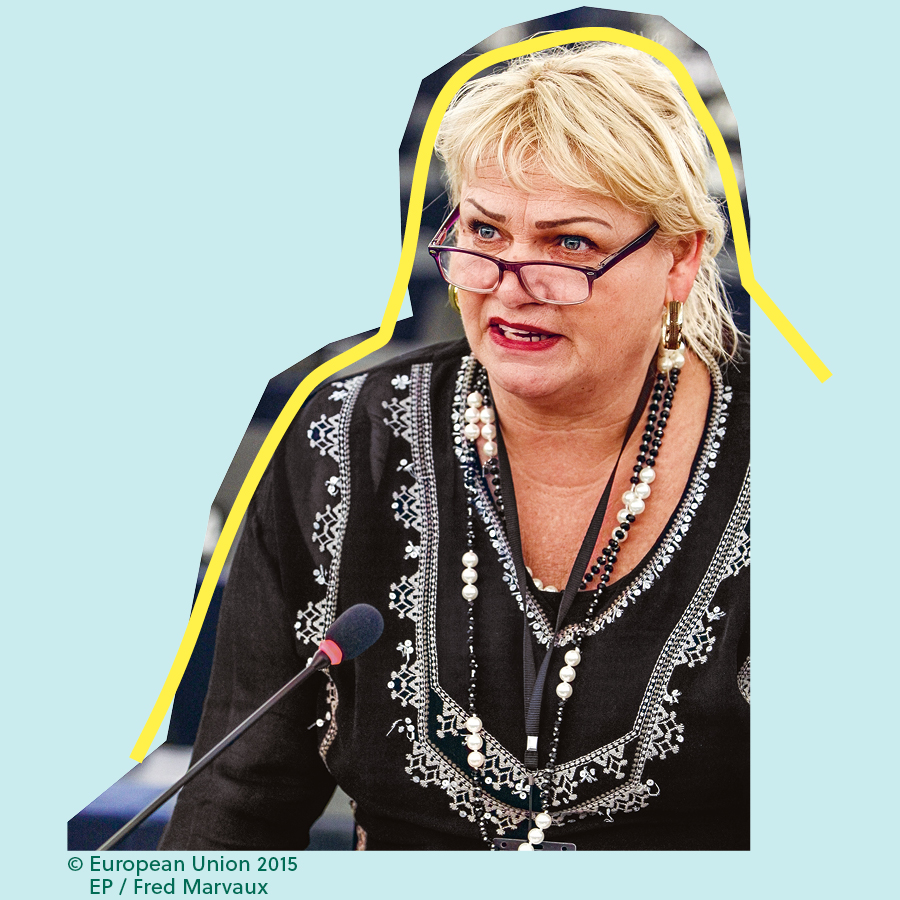
» Intersectional feminism is the understanding of how a woman’s overlapping identities […] impact on the way in which she experiences oppression and discrimination. As a Roma woman, I know myself how important it is that politicians take an intersectional approach when drawing up laws and directives. «
(2019)
SORAYA POST
(SE, 1956)
… ist Volkshochschullehrerin und Politikerin (Feministiskt initiativ). Sie war 2014 bis 2019 MdEP und für ihre Fraktion (S&D) u. a. Mitglied im AUSSCHUSS FÜR BÜRGERLICHE FREIHEITEN, JUSTIZ UND INNERES sowie im UNTERAUSSCHUSS MENSCHENRECHTE.

Proportion of women
and men in the European
Parliament
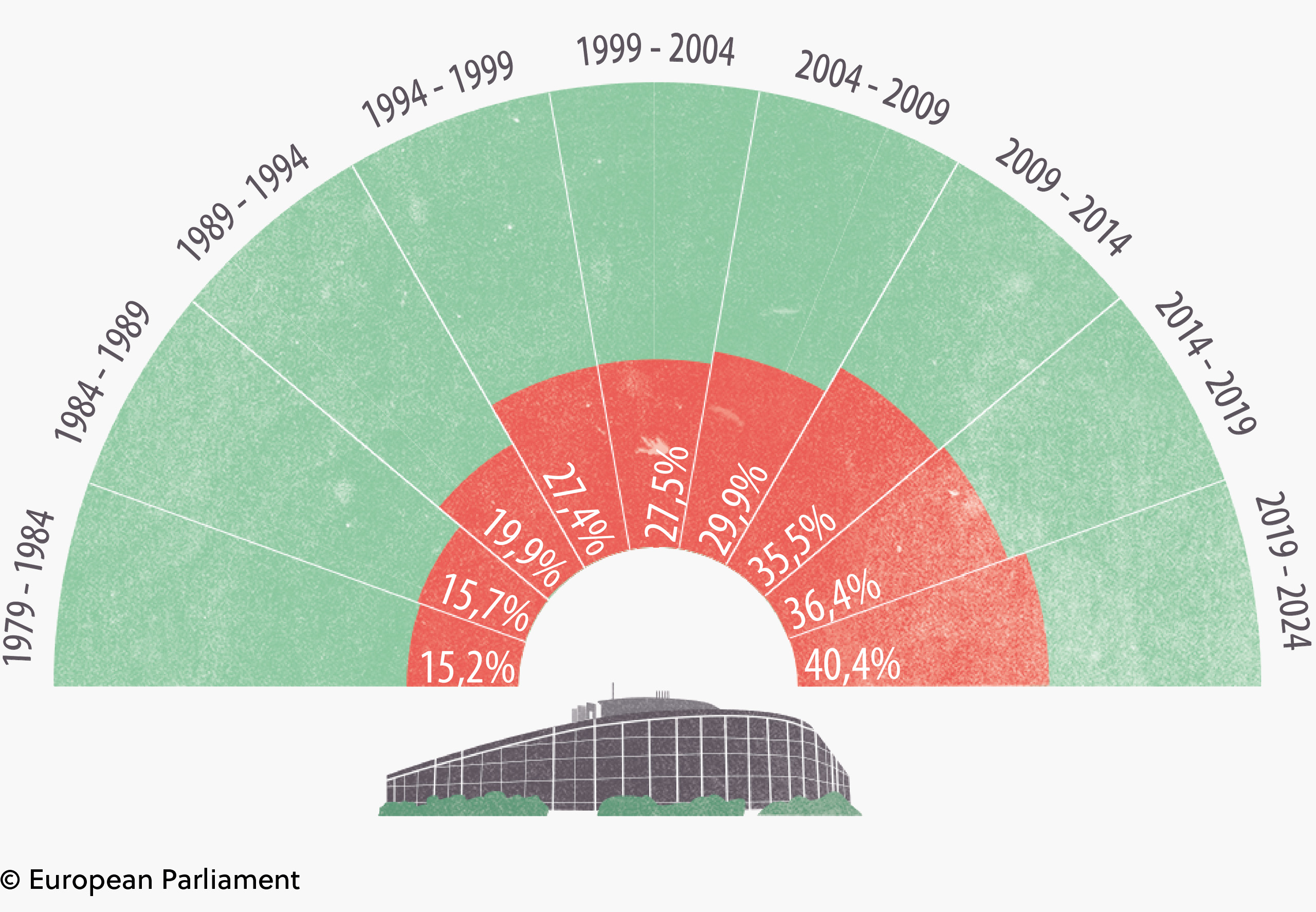
The European Parliament positioned itself as an advocate for gender equality at an early stage.
Symbolic acts such as appointing a female president after the first direct elections, dismantling institutional obstacles – for example by introducing proportional representation, which is deemed »female-friendlier« – and promoting the gender equality norm are reasons for the comparatively high proportion of women.
Members of
the European Parliament:
situation on 16 July 2019
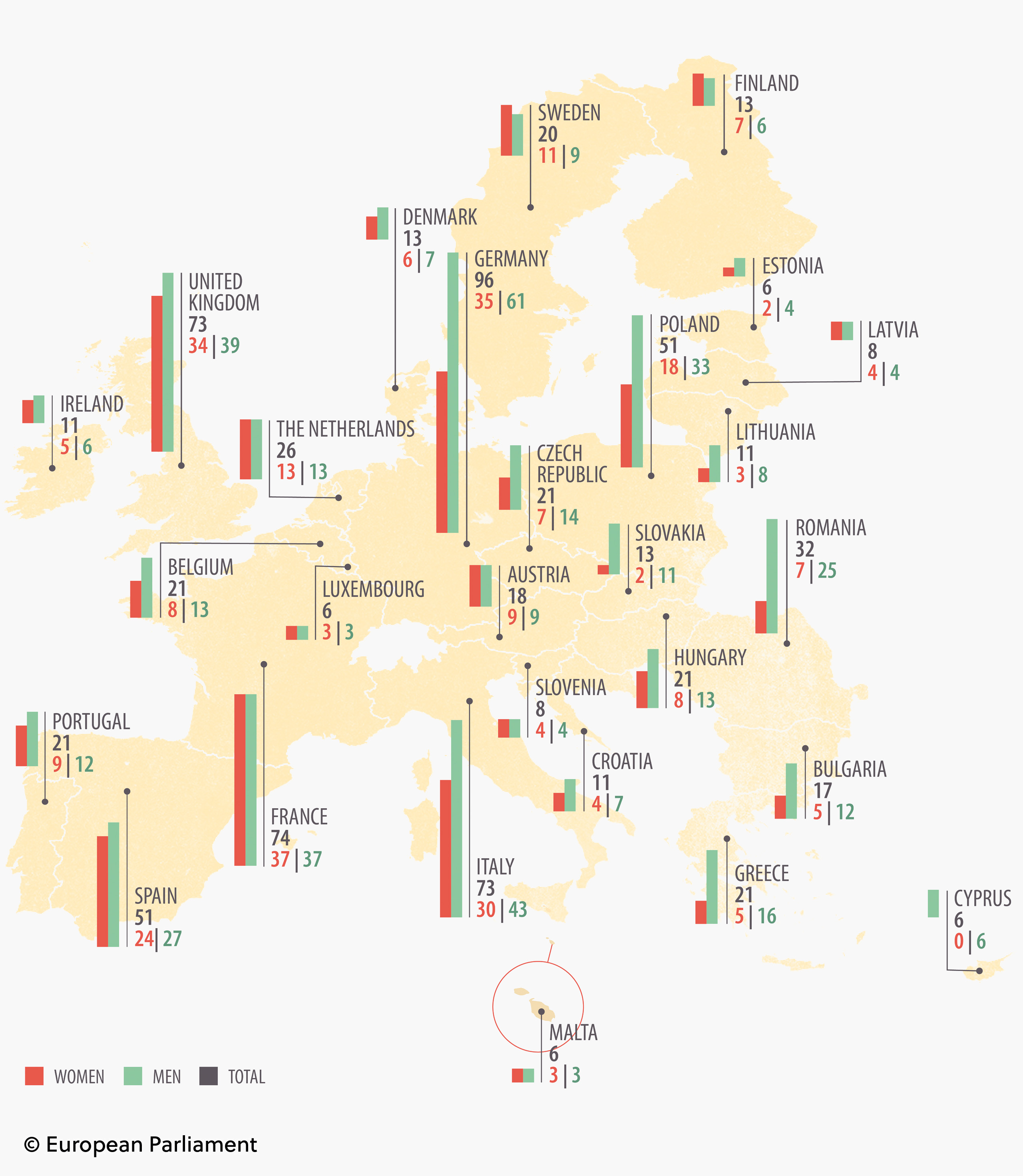
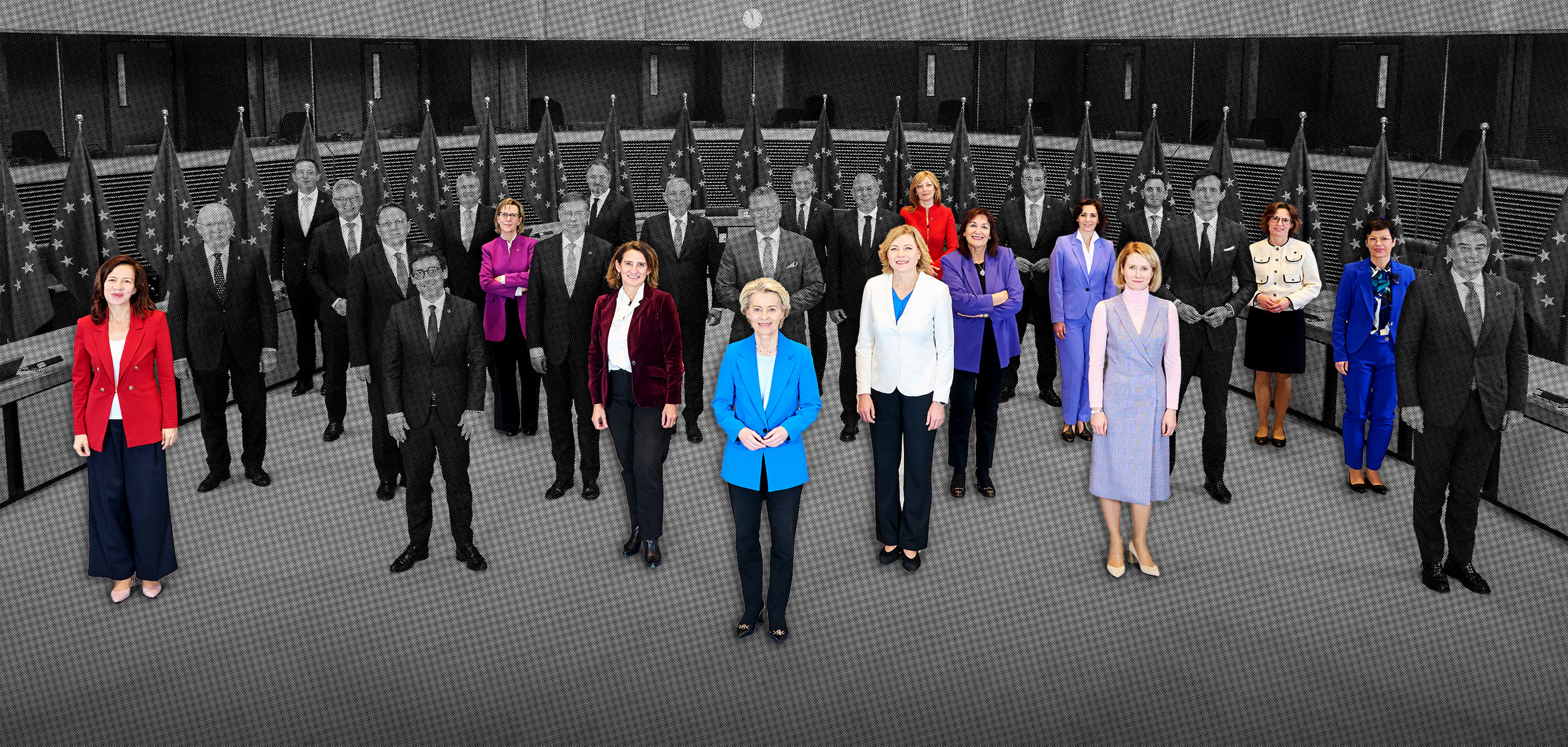
The College is composed of Commissioners from 27 EU countries. Together, these 27 members of the College are appointed as the Commission’s political leadership for a 5-year term. The President of the Commission assigns responsibilities for specific policy areas to each Commissioner. Of the 27 positions, 11 are held by women (including the President) and 16 by men. (photo edited)
